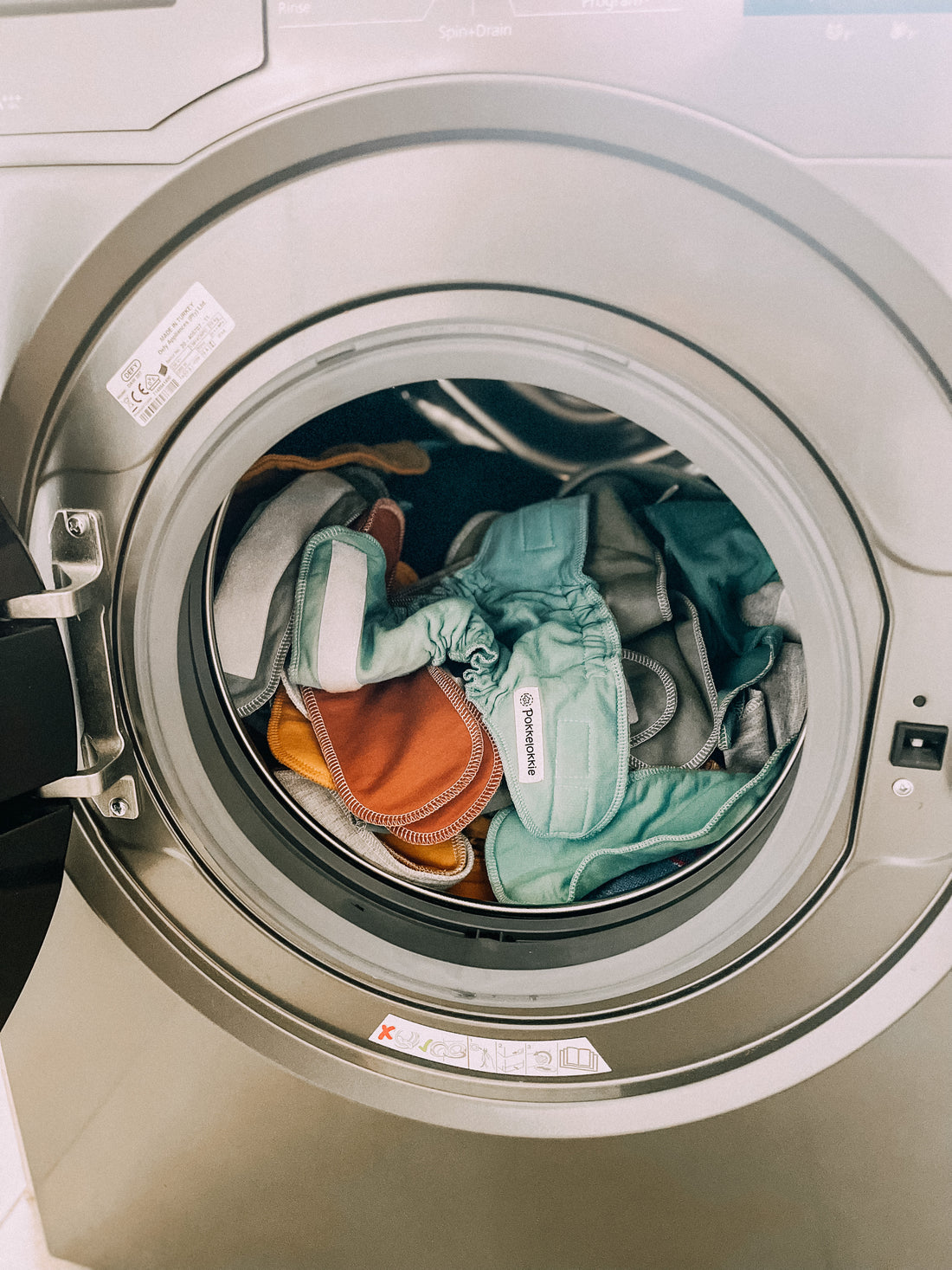
Is washing cloth nappies difficult?
Share

For parents who want to live a more sustainable life, choosing cloth nappies is definitely a step in the right direction. Is it manageable? Of course it is. Is it hard work? No it isn’t.
We tend to forget that with a baby, comes more washing anyway. Opting for full time cloth we are looking at around three washes a week. Part time cloth, two washes a week. What many people don’t realize is that nappies are first machine rinsed (which washes out urine and solids) and then put on a long main cycle with detergent. If your nappy load is not full you can then add linen, towels or any additional clothing items to the main wash. Nappies and normal washing can in fact be washed together. It does not necessarily mean you have to do an extra three load of washing for example. This all depends on the number of nappies you have.
As a cloth nappy manufacturer, we are often asked about the amount of water that is being used to wash nappies. There is a huge misconception that using reusables means using and “wasting” more water. Did you know that around 34 - 36 litres of water is used to manufacture ONE disposable nappy. This translates into 6.1kl per month. Washing cloth = 1.2kl per month. See our infographic below which breaks down the comparison. This ultimately shows that even though we think aren`t “using” water when opting for disposables nappies, we really are and in huge quantities. Using our own water to wash our nappies is by far the more water wise option. And definitely the most cost effective one in the long run.

In water restricted areas , grey water can be collected and used to wash nappies. There is generally always a way.
Now let’s chat about our time.
Time is precious. As humans we like to “save time”. We like to use our time wisely and enjoy not having to do “extra work” that doesn’t benefit us. As mothers we have a lot on our plates once children arrive. There is so much to do all the time. So much to think about. So much to prepare on a daily basis. We want to find efficient ways to do everything and push out the things that might create more work for us. This is a given. Washing nappies becomes part of your daily routine. It`s just what you do once you make the choice to use reusables. Much like once you start recycling your plastics. Modern cloth nappy washing has really come a LONG way since the good old days of soaking and washing those terri towelling nappies. If you speak to any granny today, they will all tell you how laborious this was, however they did it given no plastics were available back then. We just don’t do any of that anymore as our nappies are now made from very different fabrics that don’t require any soaking or bleaching. Technology has also sped this process up. It has been totally streamlined basically. Machine rinse, wash on a main cycle. Hang to dry. Done!. Most of us are fortunate to have a machine and this is what really does all the “hard work” these days.
So let`s break down washing a load of nappies in terms of our time:
Fill the machine with nappies: 2 mins.
Hanging: 5 – 10 mins.
Folding and packing away: 15 mins (the most satisfying and therapeutic part).
Admiring your cloth nappy stash all clean and ready for the bum :hours,days, weeks, years.
So in total we are realistically only looking at around 20 – 30 minutes per “wash”. And you know what…this mum sums it up very well: “There is something very therapeutic and fulfilling about the process. I had no idea I would be so overjoyed about the whole thing”. We are faced with this stigma of washing being boring… labor intensive… “work”. Washing your cloth nappies however is everything but that. Nappies are possibly the only item that you end up actually wanting to do. Why? Because using them is so rewarding as it generates a sense of pride within. There is nothing better than knowing deep down that what you are doing daily is better for your baby and better for the planet.
And this is the experience of using Pokkelokkie. Join our tribe. We will support you.
